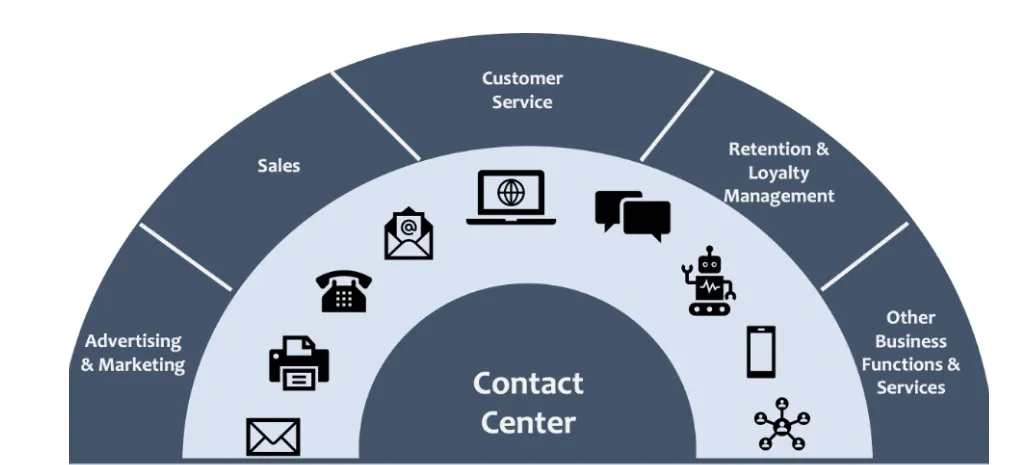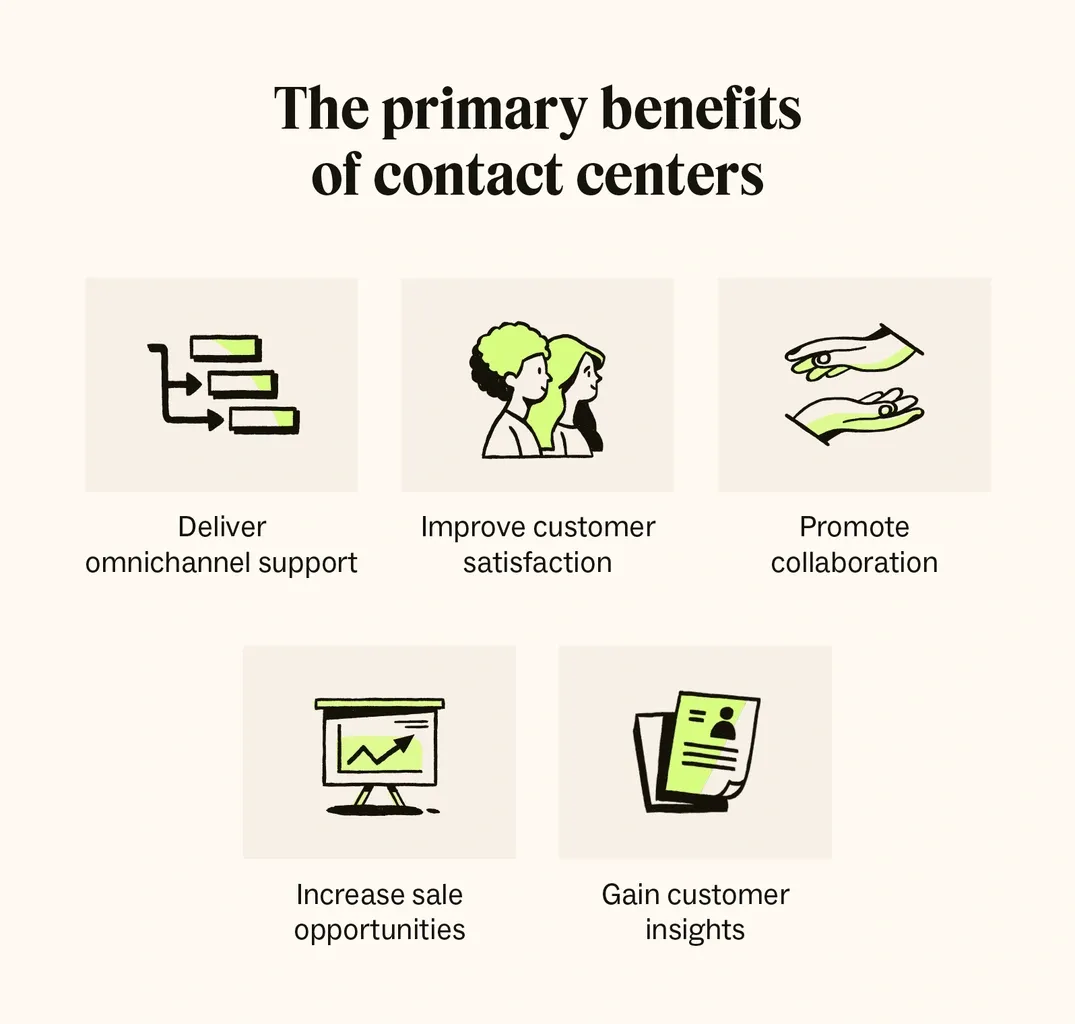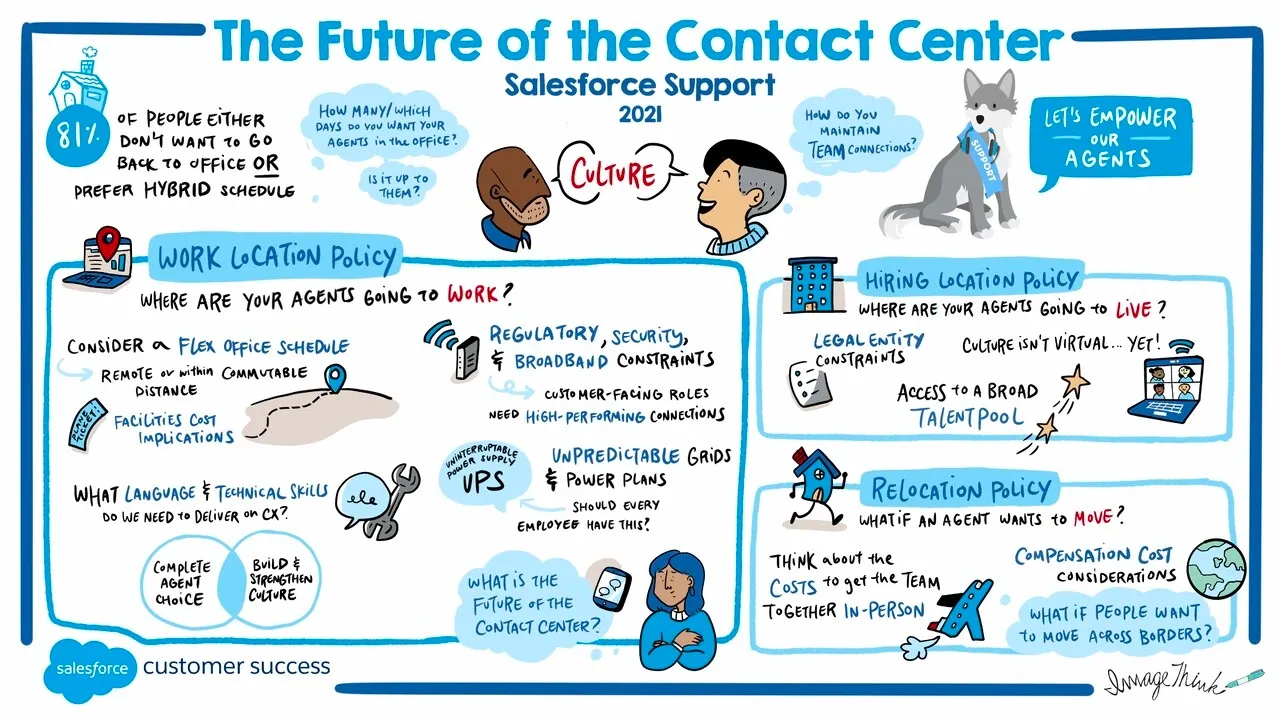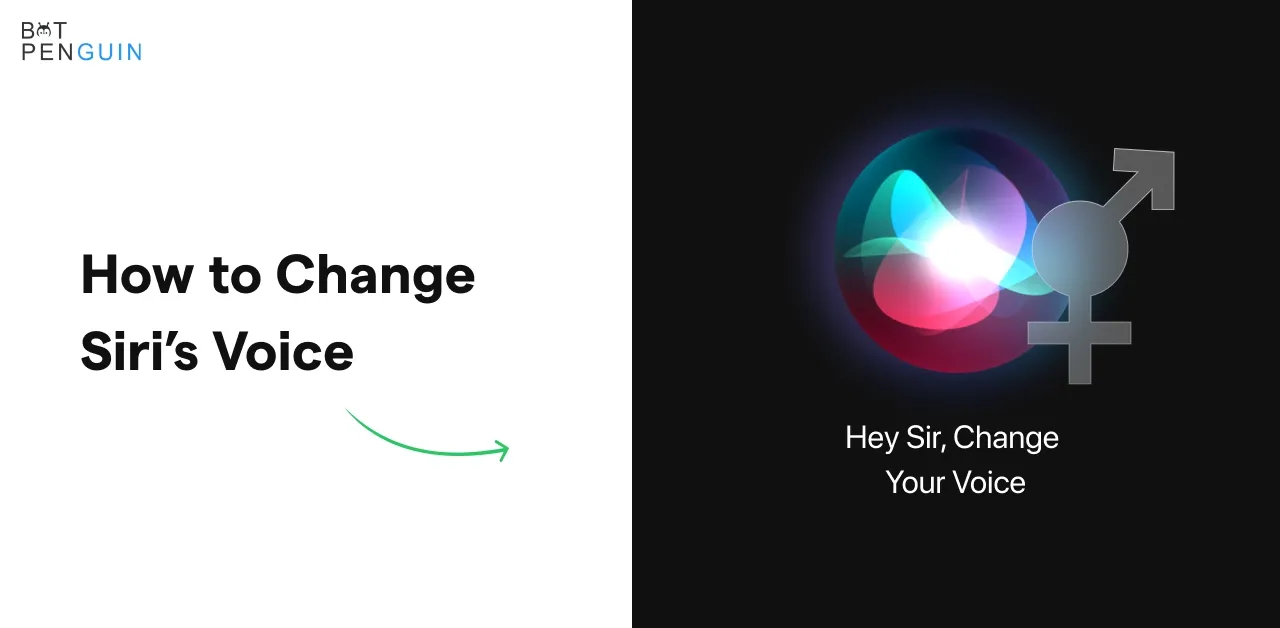Introduction
As your customer base grows, so will the number of inquiries and support requests. As a result, you'll need to figure out how to cater to consumer demands without interfering with other business processes. It is possible with contact center outsourcing.
According to global data, the size of the worldwide CCaaS (CCaaS stands for Contact Center as a Service) market is anticipated to increase from USD 4.87 billion in 2022 to $15.07 billion by 2029, with a CAGR of 17.5% over that time.
Customer expectations are higher than ever before. Consumers want customized and fast customer service via all digital platforms.
They want all channels to be integrated, whether dealing with an associate personally or through automated self-service. That is why the future contact center has to be an omnichannel contact center that delivers a 360-degree perspective of the whole customer experience rather than a siloed, multichannel call center.
Contact center transformation is a critical component of effective CX and digital transformation, in which digital technologies for customer insights, call deflection, customization, and automation are leveraged to change your traditional call center into a contact center of the future.
A cloud-based contact center can evaluate and act on a wide range of consumer data, including feedback from voice conversations, mobile, social media, email, SMS/MMS, IVR, and other touchpoints, all from a single dashboard.
A 360-degree picture of client behaviors, such as the customer's last transaction with the firm or the last channel they utilized, enables contact center workers to give relevant, tailored, and real-time help that promptly and effectively answers customer problems.
What is a contact center?
A contact center handles customer assistance across many platforms, including live chat, phone, social media, and chatbots. Contact center is a unified platform for customer-facing personnel to handle interactions received through various channels.
Using many channels instead of just the phone as the primary means of contact, it helps businesses to grow customer experience without adding more staff. That allows them to offer speedy problem fixes and maintain a high standard of customer care even during heavy demand.

When a company chooses an in-house contact center, its team members work in the same physical space as other departments and communicate online. However, data security is of utmost importance for businesses that deal with sensitive information, like banking, insurance, and healthcare.
In such cases, outsourcing to a reliable supplier with strict adherence to local and international data protection laws can be a safer option to prevent leaks and ensure the information is saved safely.
Suggested Reading:How does Contact Center Automation Boost Customer Experience?
As a result, firms effectively undergoing a digital transformation and quickly expanding enterprises that depend on the seasons now prefer to outsource customer support.
It entails giving control over the workflow to a third-party supplier while entrusting client service activities to them. This choice often saves significant money because it handles every step, from employing agents to giving a thorough customer job assessment.
Pros, Cons & Future
Contact centers are a key component of customer service for businesses, as they provide a central location for handling customer inquiries, support requests, and other interactions.
While contact centers can effectively improve customer service and build loyalty, they also come with several challenges and limitations.
Here you will explore contact centers' pros, cons, and future.
Pros of the Contact center
Improved Customer Service
One of the main benefits of contact centers is that they can improve customer service. By having dedicated agents available to assist customers via phone, email, chat, or other channels, businesses can respond quickly to customer inquiries and provide solutions to any issues. A contact center can increase customer satisfaction, loyalty, and retention.
Cost Savings
Another advantage of contact centers is that they can help businesses save money. By centralizing customer service operations and leveraging technology, companies can reduce staffing costs, lower overhead charges, and optimize resources.
Contact centers can also help businesses avoid costly errors and reduce the risk of negative customer experiences that could result in lost revenue.

Increased Efficiency
Contact centers can also help businesses improve efficiency. Companies may speed up response times, shorten call handling times, and boost customer service team efficiency by automating repetitive processes like call routing and data collection.
Suggested Reading:Ultimate Guide to Contact Center Automation with Chatbots
Scalability
Contact centers are also scalable, which means they can grow or shrink in size to match the needs of a business. As a business grows, it can add more agents to its contact center to handle increased customer inquiries.
Likewise, as a company experiences a slowdown, it can reduce the number of agents it employs to match the reduced demand for customer service.
Data Collection
Contact centers can also provide businesses with valuable customer data. By tracking customer interactions, companies can identify patterns, gain insights, and make data-driven decisions that improve their operations and customer service.
In short, contact centers offer numerous benefits to businesses looking to improve their customer service operations, reduce costs, increase efficiency, and gain valuable customer insights.
Cons of the contact center
High Employee Turnover
Contact centers tend to have high employee turnover rates. A contact center can be attributed to the stressful work environment, low pay, and the demanding nature of the job.
High employee turnover can result in higher recruitment and training costs for the company and impact customer service quality.
Language and Cultural Barriers
In contact centers serving customers worldwide, language and cultural barriers can pose a significant challenge.
It can be difficult for agents to understand and communicate effectively with customers who speak a different language or come from diverse cultural backgrounds. It can lead to misunderstandings and mistakes in service delivery.
Security Risks
Contact centers can be vulnerable to security breaches and fraud. Customers may provide sensitive information over the phone, such as social security or credit card data.
This information may be stolen if the contact center is not outfitted with adequate security measures, which might result in financial loss or identity theft.
Lack of Personal Interaction
Contact centers are often criticized for needing to be more impersonal and lacking the personal touch that customers value.
Customers may feel frustrated by automated phone systems, long wait times, and scripted responses. It can result in a negative customer experience and decrease customer loyalty.
Operational Costs
Running a contact center can be expensive. The cost of recruiting, training, and retaining staff and investing in technology and infrastructure can add up quickly.
It can pressure\ize companies to cut costs, leading to lower service quality or outsourcing to cheaper overseas centers.
Future of the Contact Center
The future of contact centers is likely to be shaped by several technological, cultural, and social changes.
The following developments might affect the contact center business in the upcoming years:
Emphasis on omnichannel customer experiences
Customers expect to be able to interact with companies via a range of channels, including social media, email, chat, phone, and messaging apps.
Contact centers offering seamless, consistent experiences across all these channels will likely be more successful.

Greater personalization
Customers expect more personalized experiences, with interactions tailored to their specific needs and preferences.
Contact centers must leverage customer data and analytics to offer customized solutions.
Shift to remote work
The COVID-19 pandemic has accelerated the trend towards remote work, and contact centers are no exception.
Many businesses have adopted the trend towards remote work arrangements, and it will probably persist long after the pandemic has passed.
The growing importance of data privacy and security
As more customer interactions move online, data privacy and security will become increasingly important.
Contact centers must protect customer data and ensure compliance with regulations like GDPR and CCPA.
Increasing use of cloud-based solutions
Cloud-based contact center solutions are becoming more popular as they offer greater scalability, flexibility, and cost savings. As a result, contact centers are likely to continue to move towards cloud-based models.
Likewise, technological advancement, shifting consumer expectations, and changing worker models will likely determine the future of contact centers.
Businesses that adjust to these changes and provide outstanding client experiences will likely succeed in the coming years.
Conclusion
Contact center outsourcing is a sensible method to handle inbound and outgoing calls in a way that keeps your clients happy while not distracting you from your essential company processes.
But, you must evaluate its benefits and downsides when determining whether or not your organization needs it and look at the popular ones accessible to businesses.
Contact centers offer numerous benefits, including increased customer satisfaction, improved brand loyalty, and valuable business insights.
However, contact centers face challenges such as high turnover rates and the need for ongoing technological updates to keep pace with changing customer needs.
The future of contact centers looks promising as technological advancements such as artificial intelligence and automation continue to evolve and transform how businesses operate. It will help streamline processes and provide a more personalized experience for customers.
Overall, contact centers are essential to the success of many businesses, and investing in their development and improvement will only lead to better outcomes for both the company and its customers.
Apart from this, BotPenguin is the best chatbot that can work well if you want to replace a contact center with a bot. Implementing the BotPenguin chatbot can improve efficiency, reduce costs, and provide better customer service.
Frquently Asked Questions(FAQs)
How do contact centers measure performance?
Contact centers use various metrics to measure performance, including the typical handling time, initial call resolution, customer satisfaction, abandonment rate, and more.
How can companies ensure data security in a contact center?
Companies can ensure data security in a contact center by implementing data privacy policies, conducting regular audits, training employees on data protection, and using secure communication channels.



